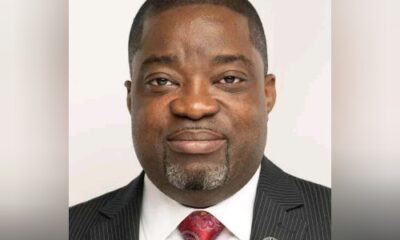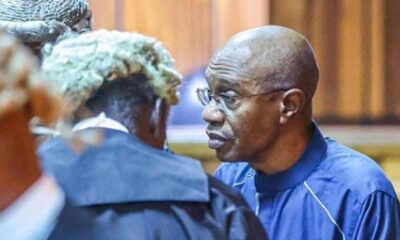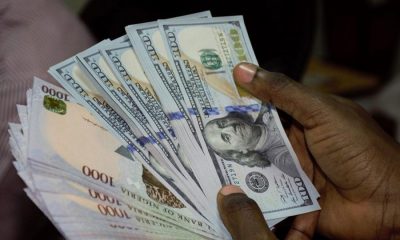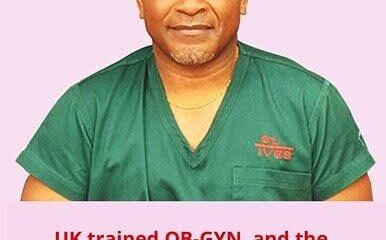Amidst the brouhaha still trailing the allegation levelled against Kano State Governor, Abdullahi Umar Ganduje, of collecting kickbacks from contractors, the National secretarial of the All Progressive Congress (APC) said it would not substitute his name in 2019 election.
Also, a high-ranking member of the state chapter of party claims the alleged received-dollar bribes were donations made for political campaigns in the state.
An online newspaper Daily Nigerian, had a month ago, released video footages captured with a spy camera showing Governor Ganduje allegedly receiving $5m bribe from a contractor.
On whether the embattled Governor will eventually be dropped as APC’s Kano gubernatorial candidate in view of published video clips, the party’s National Publicity Secretary, Mr. Lanre Issa Onilu, told PRNigeria that Ganduje remains the standard bearer of APC in next year’s governorship election.
Onilu, who clearly pointed out that the party lacks the power to change or arbitrarily substitute a bonafide candidate, added: “The INEC guidelines on the selection or replacement of candidates are explicit. It doesn’t confer power on political parties to whimsically, arbitrarily or recklessly just substitute a candidate on frivolous grounds.
“It is only when a candidate dies, voluntarily withdraws from contesting an election, or a court pronouncement that a candidate can then be substituted or replaced, if you like. So as things stand, Governor Abdullahi Umar Ganduje, regardless of the unfortunate development is and still remains APC’s Kano guber candidate. Don’t forget that the governor has sued the publisher of the online media for defamation of character,” he concluded
Meanwhile, a top party stalwart in Kano state who pleaded anonymity told PRNigeria that political parties in Nigeria collect donations and commissions from individuals and groups to fund electoral campaigns and mobilisation of members for political rallies.
The politician, who claimed to be actively involved in APC fund mobilisation in the state said: “There were agreements reached as early as 2016 on preparation for likely bye-elections and re-elections in 2019 where suggestions were made to accept donations and commissions from patrons and contractors in the state who are beneficiaries of government’s gesture.
“These donations are not for Ganduje, but for the party. They are to be deployed into funding the party’s activities and campaigns for the re-election bid of Mr. President, the Governor and other APC aspirants for 2019 general elections.
“Political donations and payment of commission are common and legitimate means of appreciation and reward for patronage. Even in media organizations, generous discounts and commissions are provided up to 30 to 40%. Ganduje has therefore done nothing dishonourable and scandalous as other state governors are also beneficiaries of financial gifts, rewards and donations from people who can afford to give.”
Another insider in the party and top-functionary in Kano State government, who equally spoke to PRNigeria in confidence, said though Ganduje may have been caught receiving bribes, he has delivered beyond expectations as Kano governor and remains the most credible flagbearer of the party to guarantee a landslide victory in the next year’s governorship election.
“The governor has executed several beneficial projects across the states. If at all he hasn’t performed excellently, will President Buhari have applauded him in Paris? Nothing can be more significant than Mr. President assuredly commending Ganduje on a diplomatic trip.”
Mallam Mohammed Garba, the Kano State Information Commissioner, was however asked by PRNigeria to verify the claim of the governor’s supporters and aides that he only collected donations and not bribes.
But the Commissioner declined to speak on the matter, saying it will amount to court contempt as the issue is already a litigation case.
(PRNigeria)


 BIG STORY3 days ago
BIG STORY3 days ago
 BIG STORY1 day ago
BIG STORY1 day ago
 BIG STORY1 day ago
BIG STORY1 day ago
 BIG STORY3 days ago
BIG STORY3 days ago
 BIG STORY2 days ago
BIG STORY2 days ago
 BIG STORY1 day ago
BIG STORY1 day ago
 BIG STORY2 days ago
BIG STORY2 days ago
 BIG STORY23 hours ago
BIG STORY23 hours ago





































